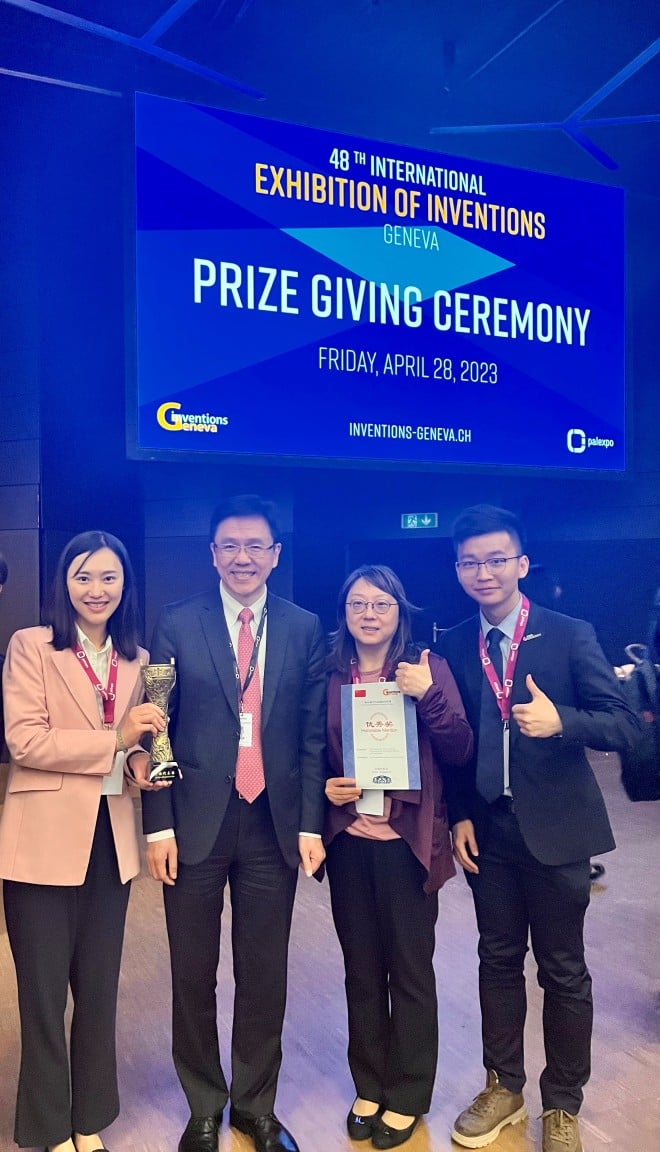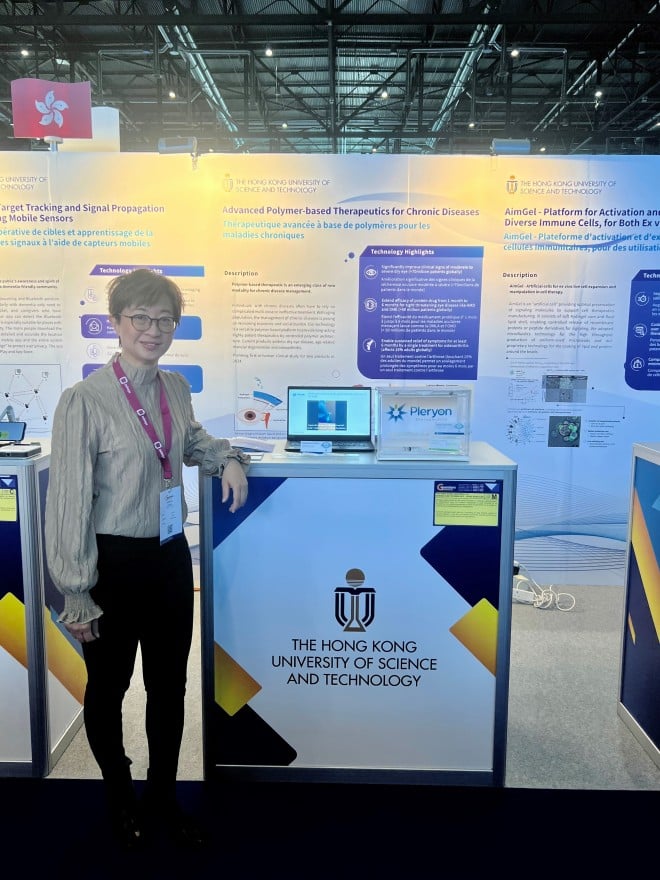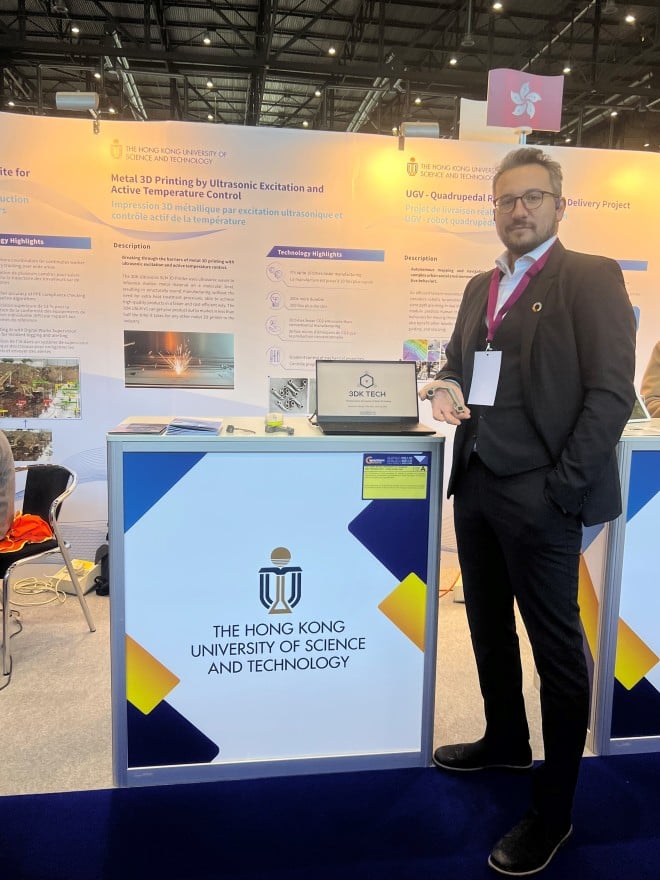[The content of this article has been produced by our advertising partner.]
The Hong Kong University of Science and Technology (HKUST) achieved a significant milestone at the 48th International Exhibition of Inventions Geneva, earning 20 awards for 19 groundbreaking inventions.
Highlights of the award-winning inventions include a biomarker-based detection system for assessing Alzheimer’s disease, advanced polymer-based therapeutics for chronic disease, metal 3D printing by ultrasonic excitation and active temperature control, as well as four innovative technologies on water treatment developed in tandem with the Drainage Services Department.
This marks HKUST’s first institutional participation in this prestigious international event. The recognition it received—a total of 20 awards—includes one Prize of the Chinese Delegation for Invention and Innovation, three Gold Medals with Congratulations of the Jury, five Gold Medals, six Silver Medals, and five Bronze Medals.
“We are proud that HKUST’s inventions and technologies have been well recognized at the International Exhibition of Inventions Geneva. It demonstrates our strong research capabilities on frontier research, which best positions us to help fill the gap by building a robust ecosystem from basic research to impact. Our success also shows the entrepreneurial spirit of our students, alumni, and faculties.,” said Professor Tim Cheng, HKUST Vice-President for Research and Development.
Inventive Projects Deliver Wide-Ranging Impact

HKUST’s winning projects encompass an expansive array of fields. The research project on assessing Alzheimer’s disease with protein biomarker panels led by HKUST President Professor Nancy Ip, won the Prize of the Chinese Delegation for Invention and Innovation and the Gold Medal with Congratulations of the Jury. The trailblazing biomarker-based detection system can identify Alzheimer’s disease five to ten years before symptoms manifest by detecting changes in blood biomarker levels.

Two other breakthrough projects were also awarded Gold Medals with Congratulations of the Jury. The first—steered by Professor Chau Ying from HKUST Department of Chemical and Biological Engineering—employs advanced polymer-based therapeutics for chronic disease management. This pioneering concept has the potential to help millions worldwide who are suffering from dry eye disease, age-related macular degeneration, and osteoarthritis.

Meanwhile, a project led by Emeritus Professor Matthew Yuen Ming-Fai, from HKUST Department of Mechanical and Aerospace Engineering, reimagines metal 3D printing. Using ultrasonic excitation and active temperature control to influence molten metal on a molecular level, the technology is able to achieve high-quality metal products in a 10-times faster and cost-efficient way with fewer CO2 emissions.
Healthcare technologies were a dominant throughline in HKUST’s entries, with several focused on advancing medical procedures, enhancing surgical outcomes, and improving patient well-being. Projects include a histological imaging system for precise surgical margin data during cancer surgery, a nanowire-based artificial retina to restore vision damaged by retinal disease and an “artificial cell” platform for activation and
expansion of diverse immune cells to support cell therapeutics manufacturing. Some of these life-altering inventions have already transitioned from the research lab to real-world applications.
Smart city solutions also played a prominent role, including four water treatment innovations devised by HKUST researchers in collaboration with the HKSAR Government’s Drainage Services Department. These solutions utilize new technologies such as odor control, solid-liquid separation, and pipeline monitoring to improve the management of public facilities.
Fostering a Robust Ecosystem for Innovation, Entrepreneurship, and Knowledge Transfer
Hong Kong’s emphasis on innovation and entrepreneurship in recent years has prompted both the government and local universities to increase support for research and innovation, encourage entrepreneurial activity, and lend vital support to knowledge and technology transfer.
As the first university in Hong Kong to invest in entrepreneurship, HKUST’s Office of Knowledge Transfer, for instance, offers funding, startup advice, mentorship, and professional services to startups founded by HKUST faculty, researchers, and students. Professor Cheng added, “We will continue to advance the readiness of our research and technology, while at the same time engaging our industry and government partners at an early stage to shorten the journey of tech transfer and push the boundaries of knowledge to create meaningful impact to society, not only in Hong Kong but all over the world.”
According to Nature’s Leading 200 academic institutions by patent influence metric rankings, HKUST is the best Chinese university and comes 33rd globally based on data collected from 2000 to 2020.
Stay connected with us on social media platform for instant update click here to join our Twitter, & Facebook
We are now on Telegram. Click here to join our channel (@TechiUpdate) and stay updated with the latest Technology headlines.
For all the latest Education News Click Here
